-
Currency
-
NEW
- All New Products
- New Kitchen Knives
- New Kitchen Tools
- Latest Vintage
- New Outdoor & Utility
- New Pantry
-
What's in my Basket Series
- Ryo Sakai -Kuma Sushi
- Ian McNemar - Woodworker, Instructor
- Anna Voloshyna - Author
- Jorge Martinex Lillard - Lolo´
- Chris Yang - Piglet & Co
- Griffin Wilson - @cabincorn
- Gabe Rudolph - Gestura Utensils
- Marc Schechter - Square Pie Guys
- Molly DeCoudreaux - Food Photographer
- Geoff Davis - Burdell Soul Food
- Jen and Wes - @crazythickasians
- Josh Donald - Bernal Cutlery
- Kelly Kozak - Bernal Cutlery
- Jessica Sullivan - Poppy SF
- Sylvan Mishima Brackett - Rintaro
- Michael Myers - Film Character
- Ali Hooke - @alihooke
- Bruce Hill - The Chef's Press
- Dylan Carasco - Butcher's Guide
- Spencer Horowitz - Hadeem
-
Japanese Knives
- Ashi Hamono
- Gihei Knives
- Godo Tadaharu
- Hado
- Hatsukokoro
- Hitohira
- Jiro Nakagawa
- Iwasaki Kamisori
- Kaji-Bei
- Kamo Shiro
- Kanehide
- Konosuke
- MAC Knife
- Masakane
- Makoto Tadokoro Marushin
- Mizuno Axes
- Morihei
- Myojin Riki Sesakusho
- Nakagawa Hamono
- Naozumi
- Nigara Hamono
- Sakai Kikumori
- Shigefusa
- Tagai
- Takada no Hamono
- Tanabe Tatara
- Yoshikazu Tanaka
- Tosa
- Tsukasa Hinoura
- Yoshikane
- Wakui
-
Global Knives
- Allday Goods (GBR)
- A Wright & Son (GBR)
- Blenheim Forge (GBR)
- J Adams (GBR)
- John Nowill & Son (GBR)
- Wood Tools (GBR)
- Au Sabot (FRA)
- Chazeau Honoré (FRA)
- Fontenille Pataud (FRA)
- K Sabatier (FRA)
- David Margrita (FRA)
- Opinel (FRA)
- Eichenlaub Tableware (DEU)
- Friedr Herder (DEU)
- Windmühlenmesser (DEU)
- Florentine Kitchen Knives (ESP)
- Pallares (ESP)
- Helle (NOR)
- Andersson & Copra (SWE)
- Hults Bruks Axes (SWE)
- Kalthoff Axes (SWE)
- Morakniv (SWE)
- Iisakki Jarvenpaa (FIN)
- Zirh (TUR)
- Alma Knife Co. (USA)
- Bernal Cutlery (USA)
- Benchmade Knives (USA)
- Buck Knives (USA)
- Dexter Russell (USA)
- Rolin Knives (USA)
- Silverthorn (USA)
- Steelport Knife Co. (USA)
- Tactile Knife Company (USA)
-
Styles
- Bernal Cutlery Collaborations
- Knife Sets
- Carving Sets
- Japanese Kitchen Knives
- Western Kitchen Knives
- Chinese Style Cleavers
- Bread
- Butchery
- Cheese | Charcuterie
- Young Chefs
- Woodworking | Hobby | Craft
- Kamisori Razors
- Table | Steak
- Pocket & Folding
- Fixed Blade, Axes & Outdoor Tools
- Scissors | Shears | Snips
- Left Handed
- The Vault
- Vintage
- Sayas | Guards
- Sharpening
- Kitchen | Cookware
- Tableware | Service
- Pantry
- Accessories
- Deals
- Gift Cards
- INFO
or
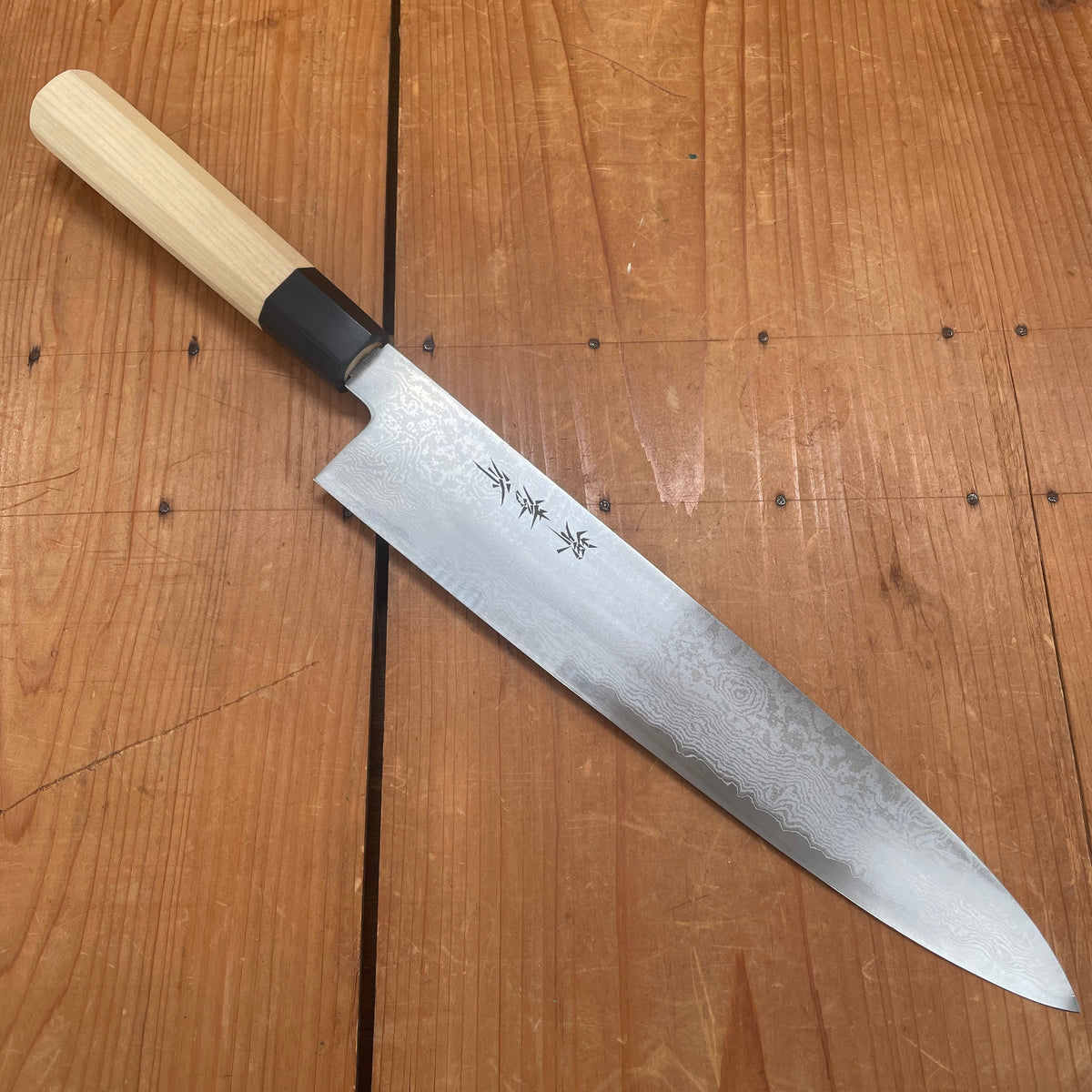
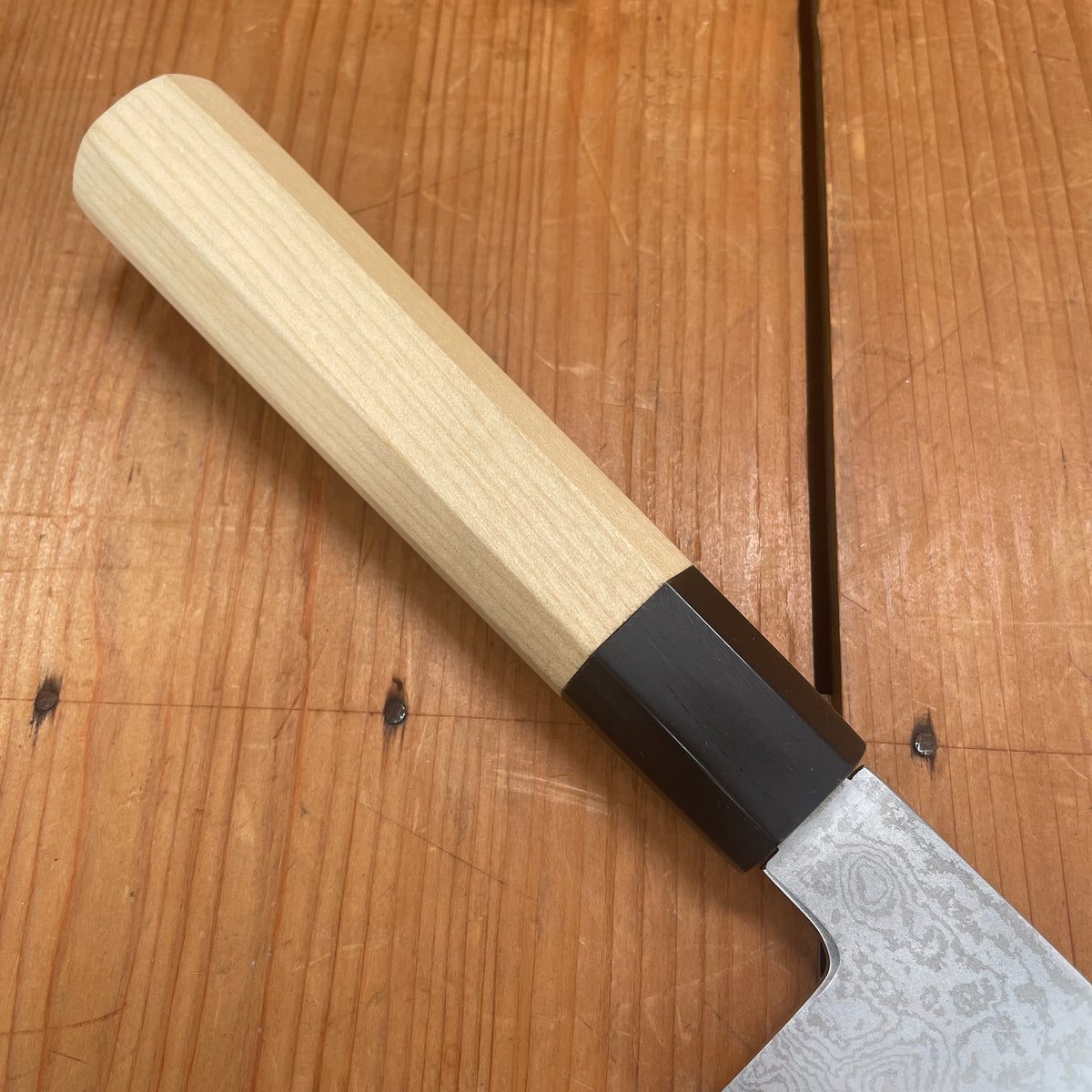
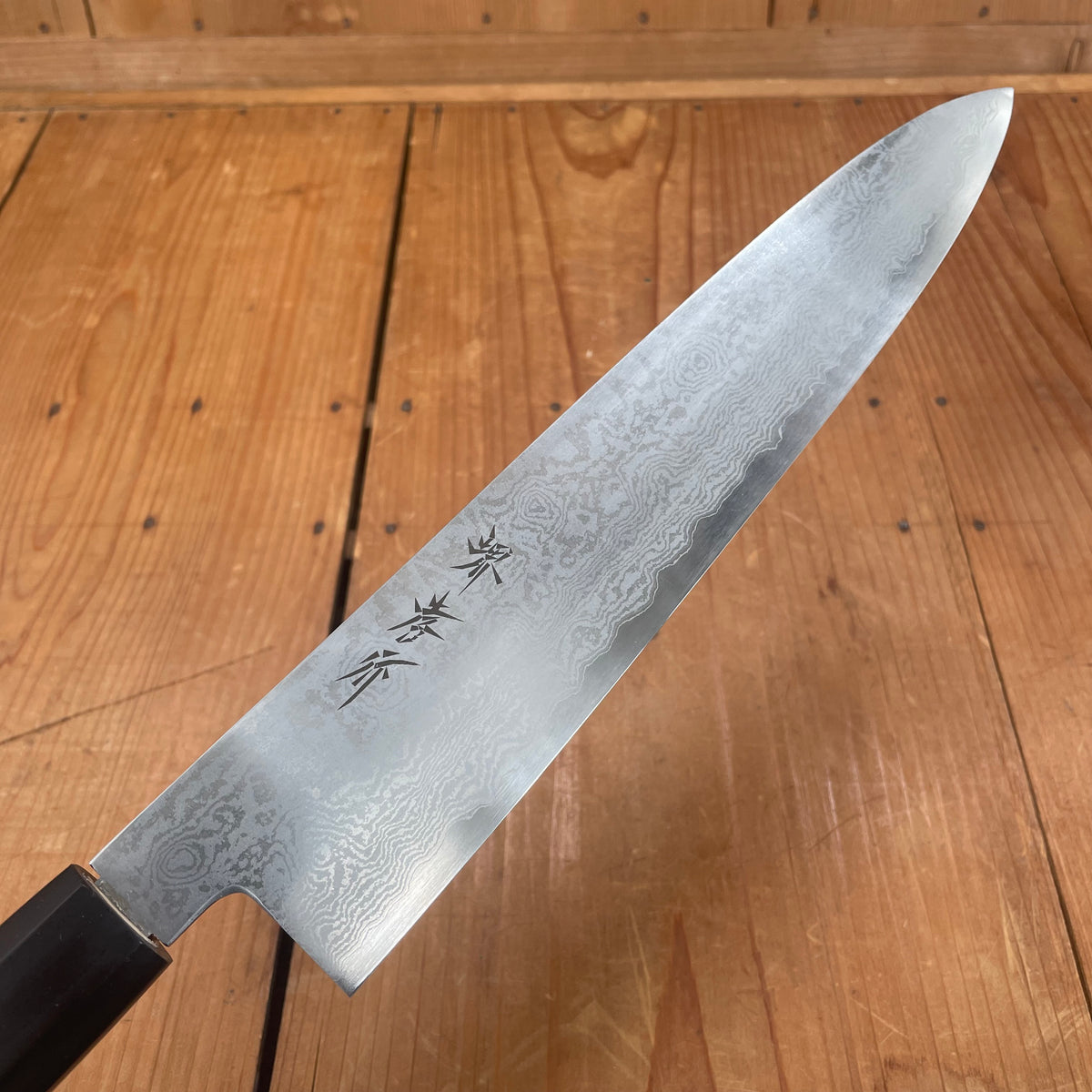
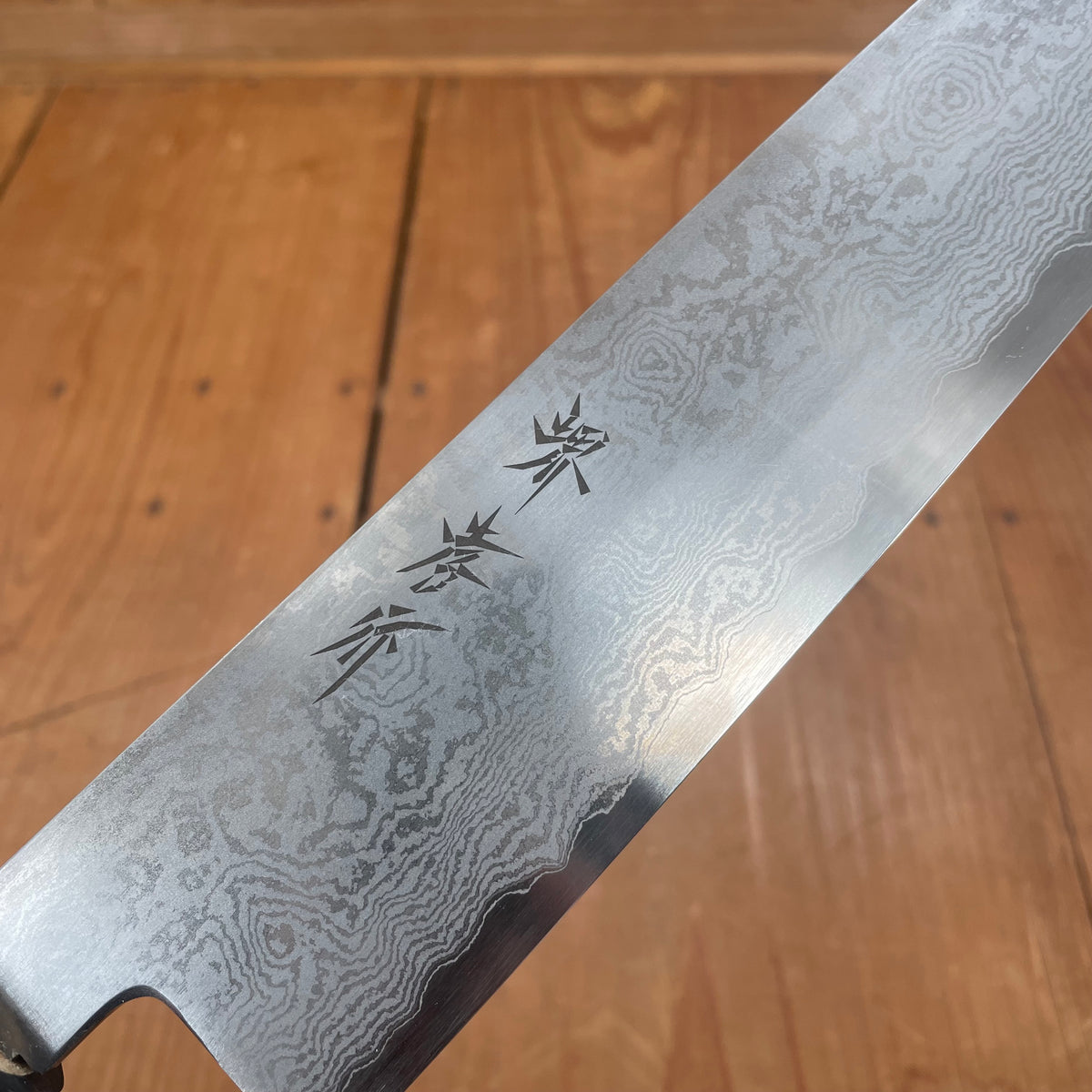
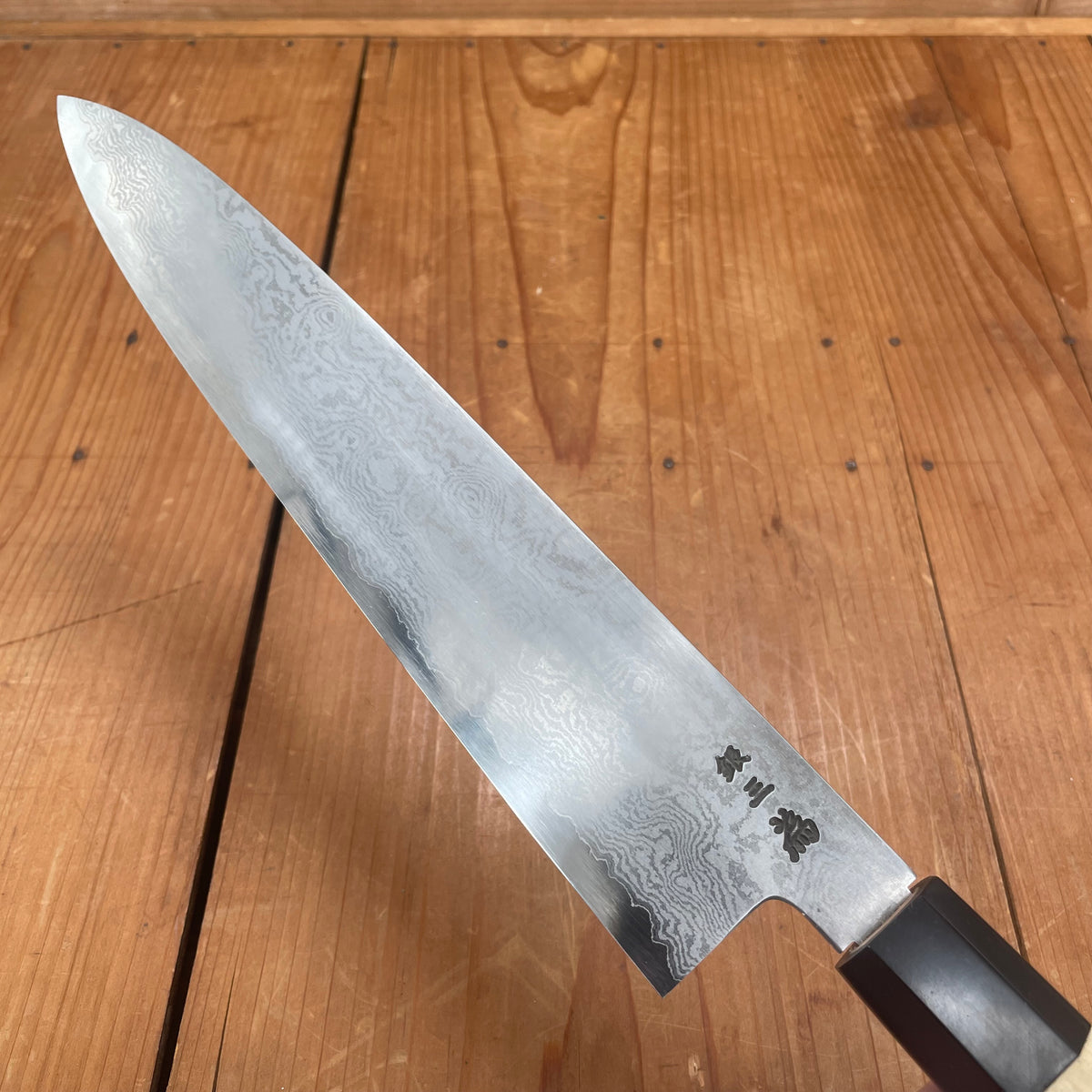
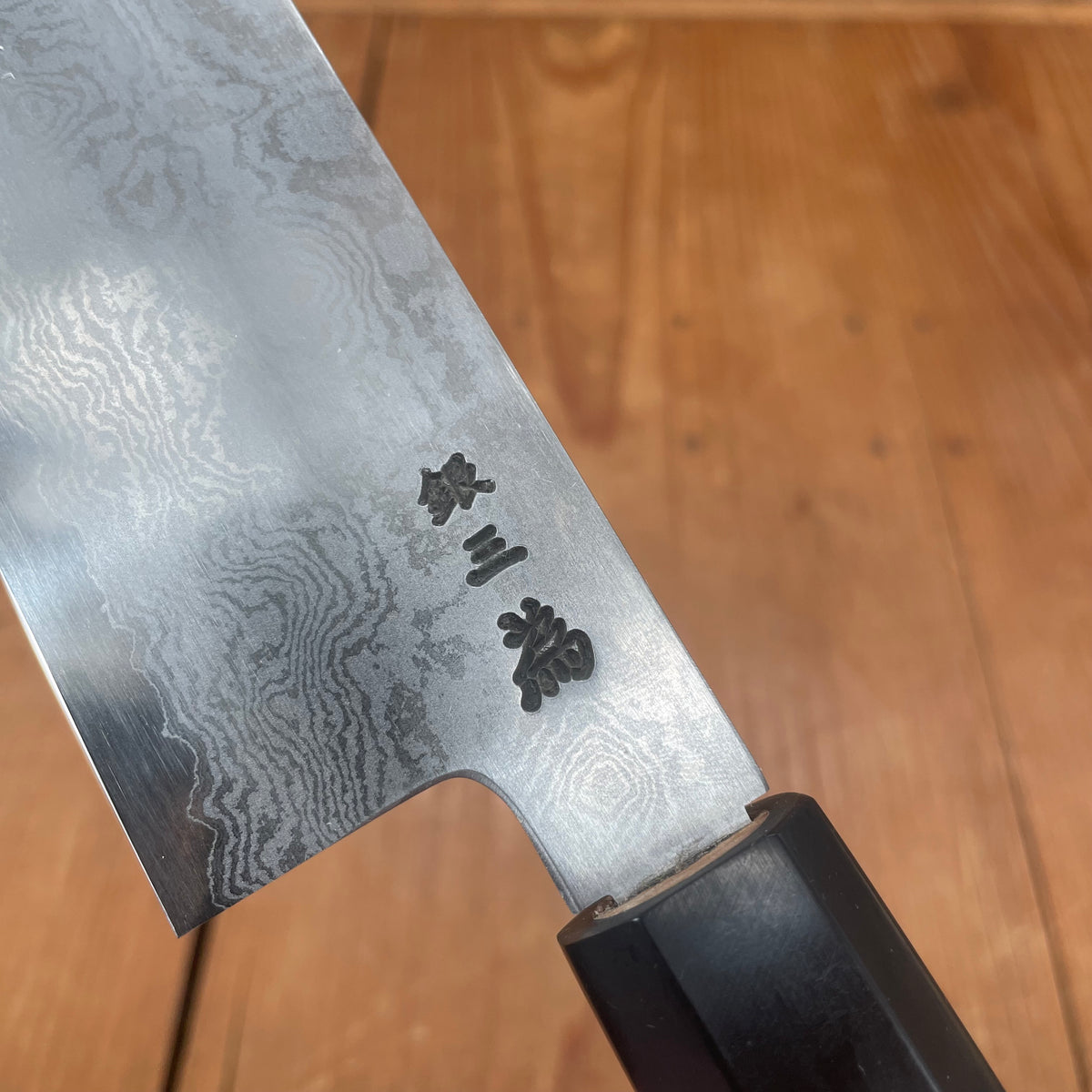
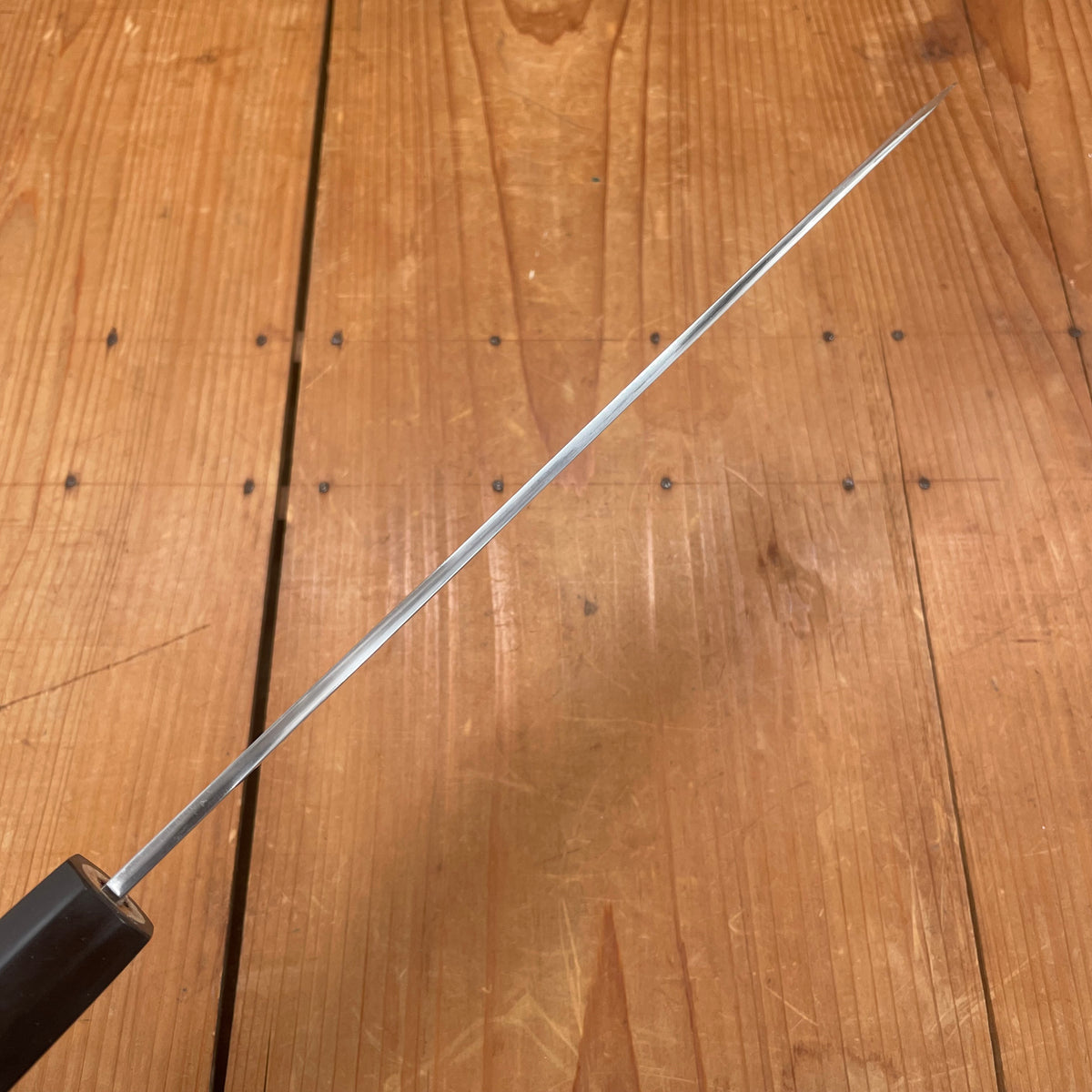
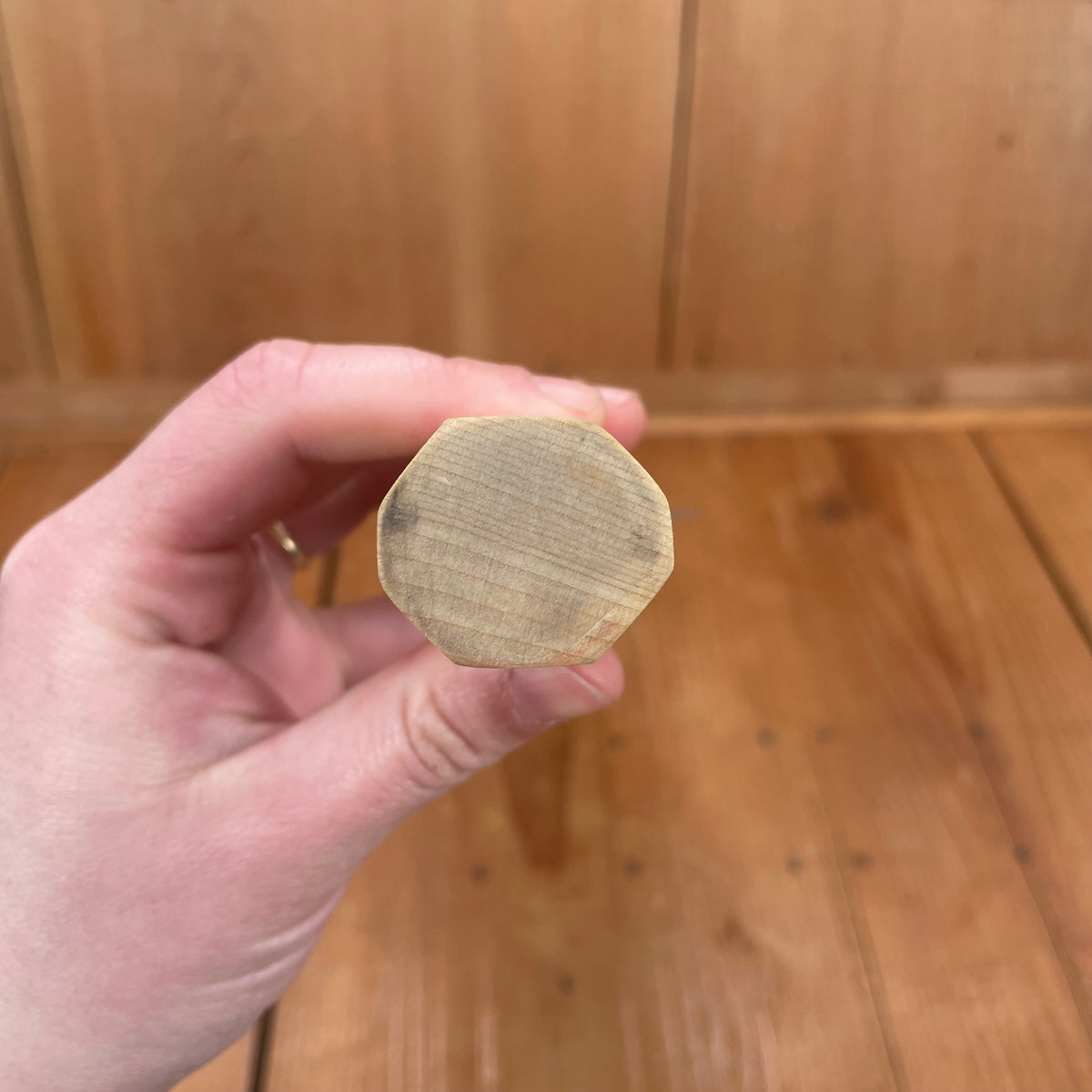
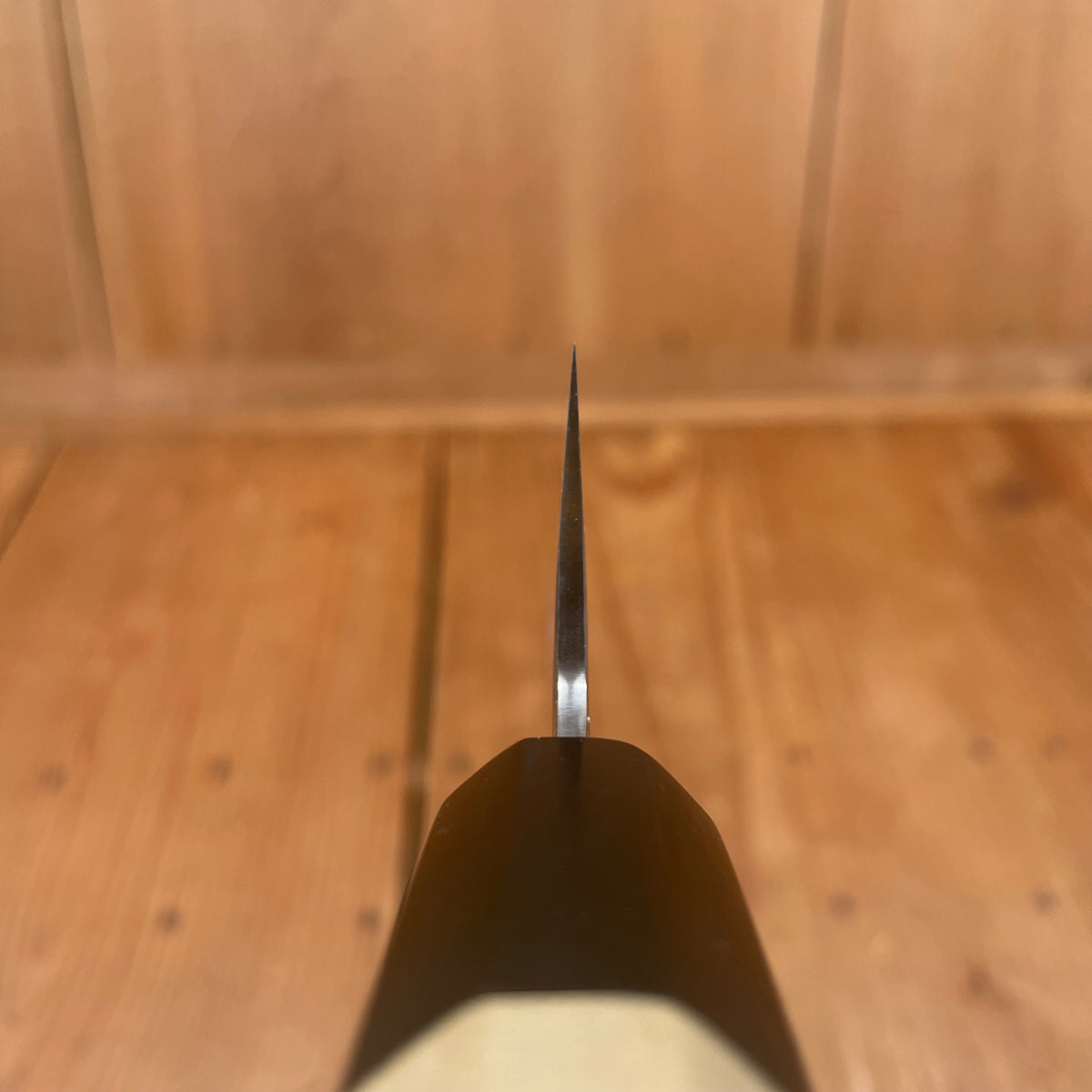
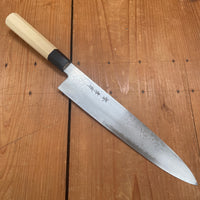
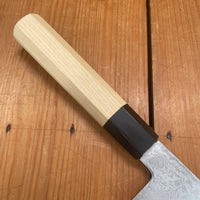
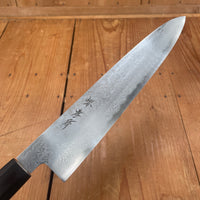
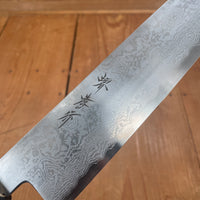
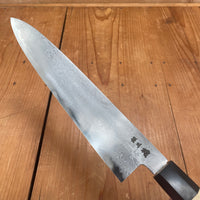
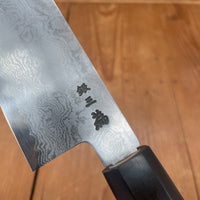
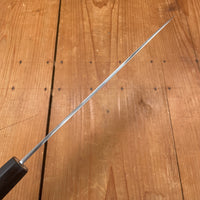
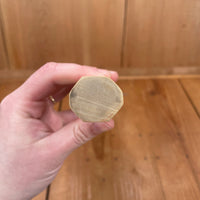
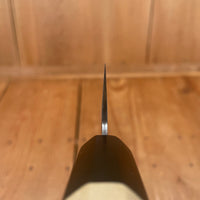
Trade In Sakai Takayuki 270mm Gyuto Ginsanko Damascus
-
Regular Price
-
€561,33
-
Sale Price
-
€561,33
-
Regular Price
-
Sale
Sold Out
-
Unit Price
- /per
- Regular Price
- €561,33
- Sale Price
- €561,33
- Regular Price
- Unit Price
- /per
Trade in gyuto in like unused condition with box and packaging. The stainless steel blade was acquired as unused and shows no evidence otherwise. The ho wood handle and buffalo horn ferrule are in excellent condition minus some light markings on the end of the end that appear to be from rubbing against the box. Ground symmetrically with a nail going edge without an overly thin behind the edge radius would say that this knife is capable of some finer, precision work but would be better used as a clean cutting, high volume knife. Perfect for skilled professional (or professional level) work.
This knife is hammer forged by Suogo Yamatsuga and ground by Hirotsugu Tosa. Yamatusuga-san is regarded and sought after for his work with ginsanko steel. Tosa-san has worked with notable blacksmith's in Sakai.
Brand: Sakai Takayuki
Blacksmith: Suogo Yamatsuga
Grinder: Hirotsugu Tosa
Producing Area: Sakai Japan
Profile: Gyuto
Size: 270mm
Steel Type: Hammer Forged Layered Stainless
Steel: Ginsanko
Handle: Ho (magnolia) with water buffalo ferrule
Total Length: 416mm
Edge Length: 263mm
Handle to Tip Length: 276mm
Blade Height: 49mm
Thickness:3.46mm
Handle Length: 144mm
Weight: 251g
Hand Orientation: Ambidextrous
HRC: 61-62
Saya: Sold Separately
This is a stainless steel knife. It should be hand washed and towel dried. Habitual dishwasher use will result in degraded edge and handle. Consistent long term exposure to moisture can lead to oxidation.
Twisting, scraping and heavy use as well as use on hard and very dense objects can lead to edge damage. Using a quality wooden cutting board will keep a sharper edge for longer. Materials like glass, ceramic and bamboo should be avoided and will make the edge go dull quickly.
We recommend hand sharpening on whetstones. We have found that most Japanese knives perform best at a finer finish starting around 4000 grit. Avoid pull through sharpeners and non-water cooled mechanized sharpening. Ceramic honing rods are preferred.
Recently Viewed
About Bernal Cutlery
We are a full-service cutlery shop offering sharpening services, Japanese and Western culinary knives, vintage knives, outdoor, pocket and craft knives, cooking tools and accessories. We also offer knife skills and sharpening classes, and more.
We are proud to serve kitchen professionals, knife enthusiasts and home cooks alike. Located in the Mission District of San Francisco, California.
